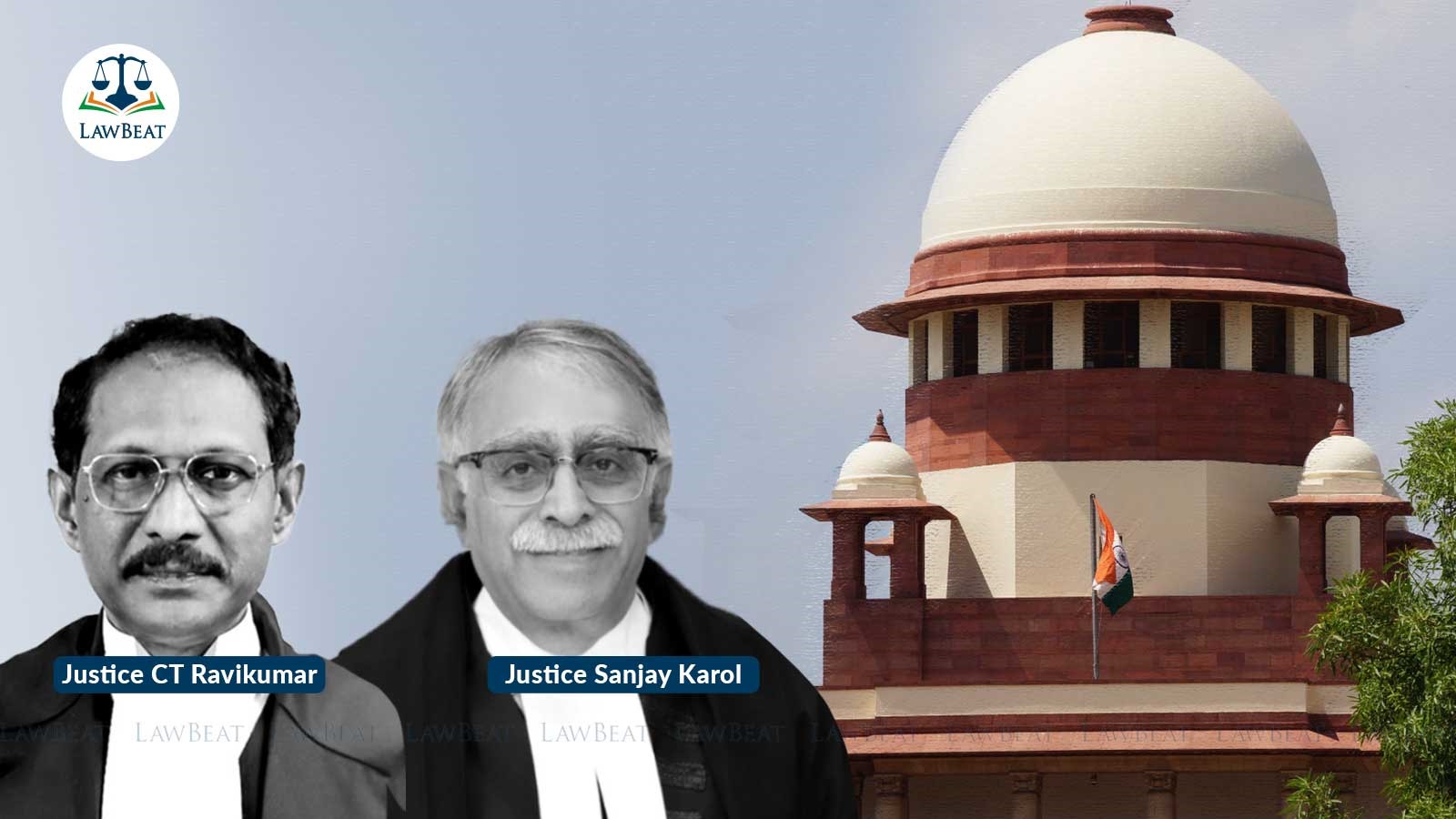'Understanding of oneself is shaken in such cases': SC Increases Compensation for 100% Functionally Disabled Accident Victim

Court underscored that the concept of just compensation is grounded in the principle of restitutio ad integrum, which aims to restore the injured person to their original condition as closely as possible
The Supreme Court has enhanced the compensation for the pain and suffering endured by a man who sustained 100% functional disability and remained comatose after being injured in a road accident in 2008. Observing that in such cases, a person's understanding of oneself is shaken or compromised, court emphasized the profound impact of the injuries.
A bench of Justices C.T. Ravikumar and Sanjay Karol modified the award granted by the Karnataka High Court on two counts: future prospects and 'pain and suffering.' The court fixed the total compensation payable to the appellant, K.S. Muralidhar, who was 37 at the time of the accident, at Rs 1.02 crore
"The injuries suffered, the ‘pain and suffering’ caused, and the life-long nature of the disability afflicted upon the claimant-appellant, and the statement of the Doctor, we find the request of the claimant-appellant to be justified and as such, award Rs 15,00,000 under the head ‘pain and suffering’, fully conscious of the fact that the prayer of the claimant–appellant for enhancement of compensation was by a sum of Rs 10,00,000, we find the compensation to be just, fair and reasonable at the amount so awarded," the bench said.
Court underscored that the concept of just compensation is grounded in the principle of restitutio ad integrum, which aims to restore the injured person to their original condition as closely as possible, as if the incident or accident had never occurred.
"While this is a well-recognised and positive principle of law, we must also recognise its limitations. The award of compensation, however much it may be, does not give back to the person who affected their life but only alleviates the worry of being able to secure the required amenities," the bench said.
The bench further remarked on the challenges of computing non-pecuniary damages, stating that there is no manner in which such determination lends itself to formulaic ciphering.
"Every person in life has undertaken certain steps tocwards the realisation of dreams, held goals and aspirations, and when they land up in such an unfortunate situation, where, for no fault of theirs, the trajectories of their lives are forever altered. Although, abstract in the written word, these factors form a large part of the ‘pain and suffering’ one undergoes apart from the manifested disability, which may be visible to another person," the bench said.
Court also highlighted the shared understanding of pain and suffering across disciplines and said that while each discipline has its own conception of the meaning of pain/suffering, within its confines, the commonality that emerges is that a person's understanding of oneself is shaken or compromised at its very root at the hands of consistent suffering.
"In the present facts, it is unquestionable that the sense of something being irreparably wrong in life, as spoken by Frank (Arthur W Frank, Professor Emeritus, Department of Sociology, University of Calgary); vulnerability and futility, as spoken by Edgar (Andrew Edgar, who is currently a Reader Emeritus in Philosophy at Cardiff University at UK), is present and such a feeling will be present for the remainder of his natural life," the bench said.
On August 22, 2008, the appellant was traveling in his company vehicle to his workplace in the Kasaba Industrial Area, Hoskote, when the vehicle collided with a container lorry, allegedly driven rashly and negligently. The accident resulted in injuries leading to 90% permanent disability.
At the time, the claimant-appellant was employed as a workman at L.M. Glassfibre (India) Pvt. Ltd., Hoskote, earning a gross salary of Rs 28,221 per month. Additionally, he worked as an agent with the Life Insurance Corporation of India, earning an annual commission of Rs 30,000 to Rs 40,000.
The tribunal initially computed the total compensation at Rs 58.09 lakh, which the High Court later enhanced to Rs 78.16 lakh.
Case Title: K S Muralidhar Vs R Subbulakshmi & Anr
